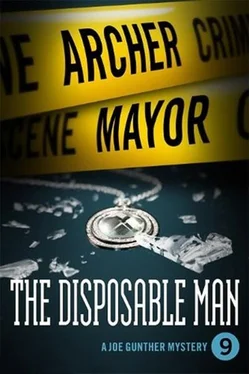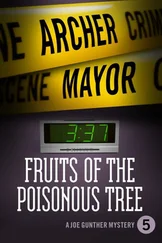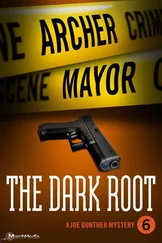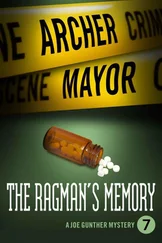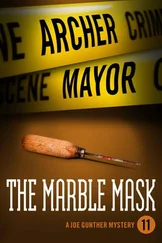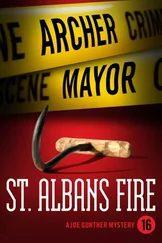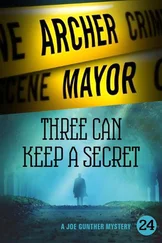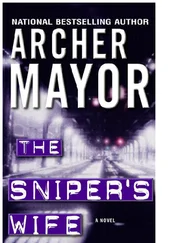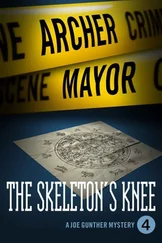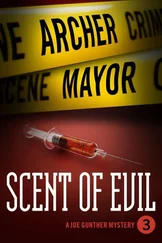Archer Mayor - The Disposable Man
Здесь есть возможность читать онлайн «Archer Mayor - The Disposable Man» весь текст электронной книги совершенно бесплатно (целиком полную версию без сокращений). В некоторых случаях можно слушать аудио, скачать через торрент в формате fb2 и присутствует краткое содержание. Год выпуска: 2013, ISBN: 2013, Издательство: MarchMedia LLC, Жанр: Полицейский детектив, на английском языке. Описание произведения, (предисловие) а так же отзывы посетителей доступны на портале библиотеки ЛибКат.
- Название:The Disposable Man
- Автор:
- Издательство:MarchMedia LLC
- Жанр:
- Год:2013
- ISBN:9781939767080
- Рейтинг книги:3 / 5. Голосов: 1
-
Избранное:Добавить в избранное
- Отзывы:
-
Ваша оценка:
- 60
- 1
- 2
- 3
- 4
- 5
The Disposable Man: краткое содержание, описание и аннотация
Предлагаем к чтению аннотацию, описание, краткое содержание или предисловие (зависит от того, что написал сам автор книги «The Disposable Man»). Если вы не нашли необходимую информацию о книге — напишите в комментариях, мы постараемся отыскать её.
The Disposable Man — читать онлайн бесплатно полную книгу (весь текст) целиком
Ниже представлен текст книги, разбитый по страницам. Система сохранения места последней прочитанной страницы, позволяет с удобством читать онлайн бесплатно книгу «The Disposable Man», без необходимости каждый раз заново искать на чём Вы остановились. Поставьте закладку, и сможете в любой момент перейти на страницу, на которой закончили чтение.
Интервал:
Закладка:
Finally, thus summoned, a pale scattering of distant shadows caught my eye through the trees to the left and brought my journey to an end. I stood stock still in the darkness, in the here and now, and saw the defining image of myself as a nervous, isolated teenager on the threshold of self-discovery.
Scattered across a gently stepped slope, only barely illuminated by concealed, muted spotlights, a company of soldiers silently hovered in the gloom, as if frozen in mid-step by the distant, dying flash of a random artillery flare.
I abandoned the sidewalk and cut across the warm grass, all discomfort forgotten, transfixed by the nineteen nebulous bronze statues that formed the centerpiece of the Korean War Memorial. As I approached, their details emerged, commingling with memory. Clad in windswept ponchos, their weapons held with the ready casualness of umbrellas or shovels, they were lean with hunger, fatigue, and worry, and their faces, barely caressed by the thoughtfully directed light, were by degrees exhausted, pensive, frightened, and resigned. The closer I got, the more clearly I could see the slightly blurry photographs I’d sent my mother from beyond the ocean, and that reside still in the albums by her side.
It is a beautiful monument, low-key and reflective. A mixed service company of slightly larger-than-life soldiers-sculpted by a fellow Vermonter-ascends a series of shallow, planted terraces reminiscent of rice paddies. Ahead of them is a pool and a flagpole, to their right a low, black polished granite wall, sandblasted with the smoky images of over a thousand people looking out, like half-seen specters, representing the millions who served with the likes of me. The countries that contributed to this ephemeral, poorly remembered effort are etched in stone, along with the numbers of people sacrificed-over fifty-four thousand of them. It is a quiet place, designed for pensiveness and reminiscence, and alone in the night I gave in to just that, slowly pacing the walkway that encircled the site.
That quiet, however, was offset by occasional urban interruptions, the most jarring of which were periodic low-flying jets heading for the nearby airport. I was strolling in an easterly direction when a particularly noisy example made me stop in my tracks and turn around to watch. Instead of focusing on a startlingly close airplane, however, I came face-to-face with a rough-looking, bearded man standing a mere ten feet behind me. He and I, witnessed by nineteen well-armed silent soldiers, were the only ones within sight.
At first, he seemed as surprised as I was, his eyes widening and his body stiffening, and then he whirled around as I had and stared down the empty walkway. He looked back at me, his eyes suspicious.
“Whaddya lookin’ at?” His voice was slurred and thick.
“You,” I admitted.
“What’s wrong with me?”
“I don’t know. What’re you doing here?”
His mouth set in an angry line. “You sayin’ I can’t be here?”
“Not necessarily.”
He considered that, found it acceptable, and loosened his stance, looking almost athletic in the process. He wasn’t old-at most in his mid-thirties-and his clothes, while far from city wear, were more rough than ragged.
He gave me a conspiratorial smile. “You do me a favor?”
He took a couple of paces toward me, which I didn’t like. Only half consciously, I moved my jacket before me, holding it loosely in both hands.
“I need some money,” he continued. “I gotta get enough for bus fare. You give me something?”
I stepped back as he drew nearer, the hairs on my neck tingling. “Isn’t this a pretty strange place to be looking for bus fare?”
His eyes narrowed, and his right hand dipped to his side. There was a metallic click and a flash of reflected light. I surprised him by leaping forward, the jacket held taut between my fists. He came up with the knife, startled by my sudden proximity, and I caught the blade in the folds of the coat, twisting it away and to one side. Inches from his face now, enveloped in his breath, I saw his mouth open in pain as he let out a shout. I then brought my knee up between his legs with all my strength.
The results were mixed. On TV that would’ve been the end of it. In fact, as he crumpled, he grabbed me around the neck with his free arm, rolled with his hips, and sent me staggering toward the nearest soldier. I tripped over the low curb separating the walkway from the terracing and stumbled with a dull clang into the statue, twisting around to keep my eyes on my assailant.
I’d dropped my coat in the process, the knife still within it, and it now lay between us on the ground. Doubled over, one hand clutching his groin, he dove for it the same time I did, just as a clear shout rang out in the night.
“ Police . Stop where you are.”
I got to the jacket first, but only because my opponent pulled up at the last second, rabbit-punching me in the neck instead of fighting for the knife. As I collapsed onto the cement, the flat switchblade hard against my chest, I saw him run off into the darkness toward Independence Avenue.
Heavy footsteps ran up behind me. “ Don’t move .”
I twisted around to look up at a young patrolman, standing over me with a gun in his hand. “I’m the victim .”
He looked at me nervously and then glanced up to where the other man had vanished.
“I’m also a cop,” I continued, very slowly reaching for my back pocket. “I’m going for my badge.”
I extracted the worn leather folder and flipped it open.
The patrolman slowly lowered his gun, his disappointment complete. “Shit.”
The DC police were sympathetic and helpful, giving me aspirin and an ice pack for my neck. They listened patiently to my account, took a few notes, and when they were done, they even drove me to my Arlington motel. But I wasn’t asked to look through any mug books, or to give a detailed description to an artist, and when the switchblade was recovered, I noticed no effort being made to preserve any fingerprints. What I’d suffered, I was told, was a typical attempted mugging-one of the mandatory accessories of any large city. I was wished a pleasant visit, given a generalized apology for having witnessed the back end of the welcome wagon, and left to my own devices.
That night, however, as I lay watching the passing car lights play across my ceiling, I found myself unable to be as casually dismissive. While not a city dweller, I still knew the makeup of the average mugger. The man I’d wrestled with had not been such a creature. I’d sensed duplicity and purpose in his eyes, beyond the presence of any cash in my wallet.
As the hours slipped by, the more I replayed what had happened, the more I believed our meeting to have been no simple random act.
Chapter 5
The entrance to the CIA is disarmingly placid. A large sign off of Virginia Route 123 announces its presence, the initial access road is empty, treelined and free of any obvious security, and when the first man-made obstacle is encountered, it consists solely of a kiosk equipped with a camera and a loudspeaker. I announced myself there, showed my badge to the camera as requested, and proceeded to a visitors’ center farther down the road. Only then, leaving my car to enter the small building, did I glimpse my final destination at the end of a woodsy corridor-gray, massive, and studded with antennae.
The security people behind the counter were polite and efficient, dressed in cheap uniform jackets decorated with identification tags listing numbers and letters only-no names. I was asked to fill out forms, to explain once more my purpose for being there, and was issued a parking pass and a visitor’s badge. A phone call was made to the main building, and I was given directions to the parking lot opposite “the old main entrance.”
Читать дальшеИнтервал:
Закладка:
Похожие книги на «The Disposable Man»
Представляем Вашему вниманию похожие книги на «The Disposable Man» списком для выбора. Мы отобрали схожую по названию и смыслу литературу в надежде предоставить читателям больше вариантов отыскать новые, интересные, ещё непрочитанные произведения.
Обсуждение, отзывы о книге «The Disposable Man» и просто собственные мнения читателей. Оставьте ваши комментарии, напишите, что Вы думаете о произведении, его смысле или главных героях. Укажите что конкретно понравилось, а что нет, и почему Вы так считаете.
